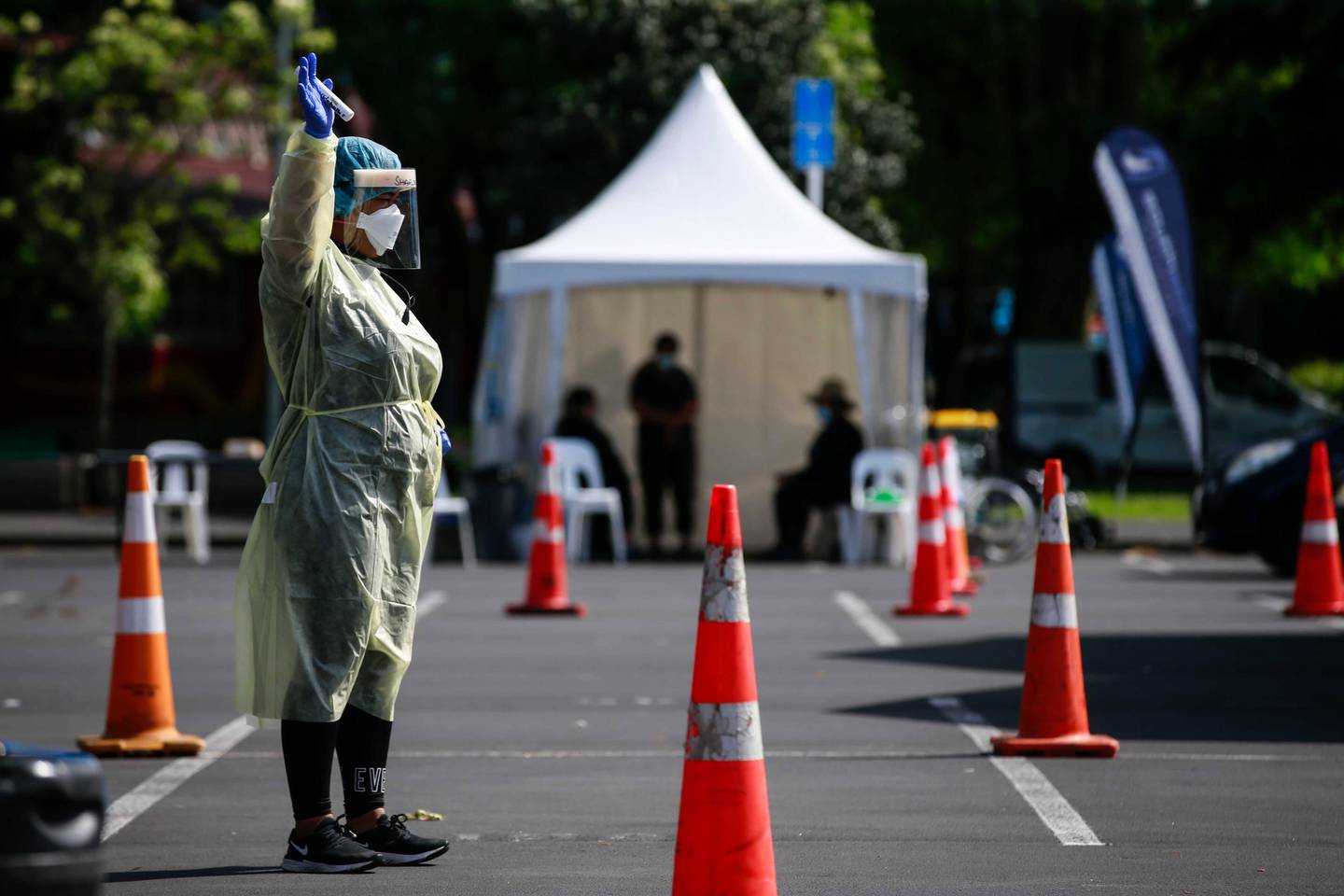Omicron will overtake Delta and become the dominant Covid-19 variant in the New Zealand community in two to four weeks.
That's the prediction from the Ministry of Health, which says district health boards are undertaking "significant work" to prepare for an outbreak of the highly transmissible variant.
It comes as top Auckland health officials estimate Omicron will break into the City of Sails in two to three weeks' time.
A Ministry spokesperson said international evidence indicated transmission would occur rapidly and by mid-February, most people with Covid would have Omicron.
While Omicron appeared to be less detrimental to a person's health than Delta, the spokesperson said limiting demand on intensive care and ward beds, ventilators and health staff would be key in New Zealand's response.

However, there was the capacity to surge ICU bed numbers and DHBs had options to administer a range of oxygen therapies outside ICU.
The spokesperson said DHBs were undertaking "preparedness plans", including regional planning to share skills, resources and how to co-ordinate responses.
It is understood Auckland's DHBs have compiled a raft of international data over the past week and would be finalising aspects of their response in the coming days.

Auckland's Covid-19 vaccination programme clinical director Dr Anthony Jordan believed it would take two to three weeks for Omicron to break into the community - citing predictions from modeller Michael Plank and epidemiologist Michael Baker.
"I wouldn't second-guess what [Plank and Baker] say, but that's the timeline we're dealing with," he said.
"The more people you have at the border [with Omicron], the greater the likelihood a case could slip through."
Omicron had become the most common variant found at the border, with 196 Omicron cases detected at the border since December 1, and 11 cases of the Delta variant.
Asked on what number of cases would be expected in the first weeks of a community outbreak, Jordan said it was difficult to predict.
However, looking at spread in Australia, Jordan said it appeared cases were doubling every two to three days.
Despite high vaccination levels, the transmissible variant has exploded across the ditch, heaping pressure on health services and test supplies.
New South Wales reportedly saw more than 90,000 positive cases on Thursday. It corresponded with the launch of a new rapid antigen test reporting system, which looked to address calls from experts saying the state's true case tally was underestimated.
Expecting a large volley of cases in a short time, Jordan said management of cases isolating at home would evolve into a more patient-driven framework.
Health officials would largely focus on engaging with vulnerable communities while others, who were able to manage their health independently, could do so without taking up unnecessary resource.
Asked whether people could fall through the cracks under that system, Jordan said populations who would need help were being identified to ensure appropriate support was given.
Maree Munro, director of the Waikato District Health Board's Covid-19 Directorate said "many people" across the health system had worked on a response to the pandemic, including the Omicron variant.
That work included drawing on the international experience of the virus.

"There is also national planning underway through the Ministry of Health which will guide planning and preparedness for all DHBs," Munro said.
"Our focus during the current Delta outbreak has increasingly been on supporting people to isolate in their homes, and this would also be needed in the event of an Omicron outbreak. Our hospitals have their readiness plans that they can scale up to meet increased demand."
High vaccination rates would help, Munro said. Testing would also be critical in the case of a new outbreak.
Jordan was speaking at Auckland's newest drive-through vaccination centre at the Eventfinda Stadium in Wairau Valley, which opened on Monday (seven days a week, 9am to 4pm).
From Monday, parents will also be able to book vaccination appointments for 5 to 11-year-olds as the rollout to that age group begins.
Vaccination programme director Matt Hannant said the new centre gave people on the North Shore more opportunity to get vaccinated after the Birkenhead site closed.
Hannant was hopeful it would spur uptake of booster shots, which were proven to significantly raise a person's immunity against Omicron.
So far, about 200,000 of the 530,000 Aucklanders who were eligible for their booster had received it. A person must have gone four months after their second dose to qualify for their booster.
The new site had capacity to administer up to 3000 vaccines per day.
He also reassured Aucklanders of the planning done to prepare for Omicron.
"There is a lot of work being done a lot of systems and processes in place to make sure that we're prepared for when that happens."
Over the New Year period, vaccinator staff had undergone training ahead of child vaccinations.
Jordan said a strong component of that training had been ensuring children were vaccinated in a safe and enjoyable way.
He encouraged parents to consider whether a drive-through centre was the best fit for their child and if not, to seek out a GP or pharmacy who could provide the service.
Meanwhile, the Employers and Manufacturers Association said looking at the Covid spread across Australia and other countries, access to Rapid Antigen Testing (RAT) was what was required to keep New Zealand open for business and avoiding the "big sick" for our workforce.
Chief Executive Brett O'Riley said nasal swabbing and Covid-19 tracking systems in Australia had been overwhelmed by the Omicron variant.
He said it was imperative that New Zealand had a stockpile of RAT kits ready for use in businesses, homes and public facilities.
"The spread of this new, more virulent, strain is unfortunately inevitable and it's impossible for businesses to put effective plans in place to continue to operate unless they can test staff quickly, easily and cost-effectively," O'Riley said.
"We need RATs to minimise infection transmission in the workplace and to enable access across our international borders for returning New Zealanders and skilled migrants.
"New Zealand cannot afford to go into another extended lockdown, and we want to help be part of the solution that keeps our economy open and our communities safe. A huge part of that is using RATs."













